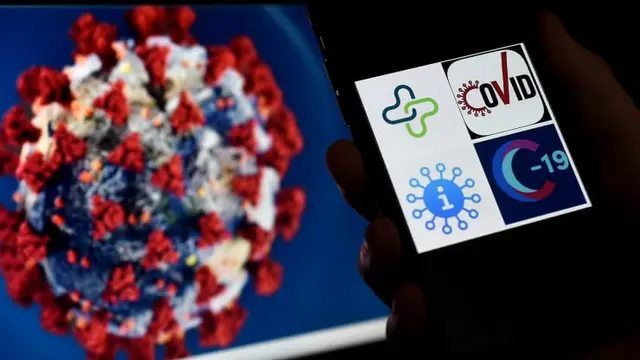A coronavirus contact-tracing app that alerts users when they have come into contact with people infected with Covid-19 will be ready in two to three weeks, according to a senior National Health Service (NHS) official.
Matthew Gould, chief executive of NHSX, the digital arm of the NHS responsible for developing the app, told members of parliament Tuesday that the unnamed app will be tested locally before it is rolled out to the wider public.
“We are, I hope, on course to have the app ready for when it will be needed, at the moment when the country looks for the tools to come out of lockdown safely,” Gould told the U.K. parliament’s science and technology committee.
“I would expect it technically to be ready for a wider deployment in two to three weeks,” he said.
The U.K. government has said the NHS app will play a vital role in easing the country’s lockdown restrictions. In order for it to be effective, however, testing will need to be ramped up significantly and thousands of manual contact-tracers will need to be hired.
Last week, it emerged that the NHS app was already being tested at a British Royal Air Force base in the North of England.
The app uses short-range Bluetooth signals to detect when two or more people have been in close proximity for a specified amount of time.
Automated alerts are sent to people who have come into contact with fellow app users who have tested positive for the virus. The alert will advise the app user to take a coronavirus test or self-isolate. To protect privacy, the recipient won’t be told the name of the person who triggered the warning.
Centralized vs. Decentralized
Governments, tech companies, and privacy campaigners are currently locked in a complex debate around whether to build “centralized” or “decentralized” contact-tracing apps.
It all boils down to citizen’s data, who has access to it, and where it is processed.
Generally speaking, the centralized approach puts governments in charge of the data, while the decentralized approach puts the tech companies in charge.
Unlike Germany and other European countries, the U.K. is shunning Apple and Google’s new “decentralized” system, which allows apps to carry out matches on the smartphone itself.
Instead, the NHS has chosen to build the app around a “centralized” platform that sees contact-matching happening on a computer server. NHSX’s Gould said a centralized system would allow the NHS to do “certain important things that you couldn’t do if it was just phone-to-phone propagation.”
Ross Anderson, professor of security engineering at the University of Cambridge, told technology news website ZDNet: “A small amount of privacy exposure is entirely acceptable in the context of a pandemic.”
EU Internal Market Commissioner Thierry Breton said on Twitter last week that he had a “good exchange” with Apple CEO Tim Cook on the need to ensure contact-tracing apps are anonymized, voluntary, transparent, temporary and secured.
The decentralized approach largely does away with mass surveillance concerns because it prevents governments from being able to see who is meeting who, at what time, and where. Privacy campaigners have raised concerns that this could lead to government over-reach, as portrayed in George Orwell’s dystopian novel 1984.
Other countries such as Singapore, Australia Israel, South Korea and China have already rolled out contact-tracing technologies with varying levels of success.
Singapore became one of the first countries in the world to deploy a centralized contact-tracing app. However, TraceTogether, as the app is known, is voluntary, and only 12% of the population downloaded it, making it relatively ineffective.
The Australian government launched a similar app on Sunday and more than two million Australians — or around 8% of the population — downloaded it within 24 hours of it going live.
(CNBC)
 简体中文
简体中文




